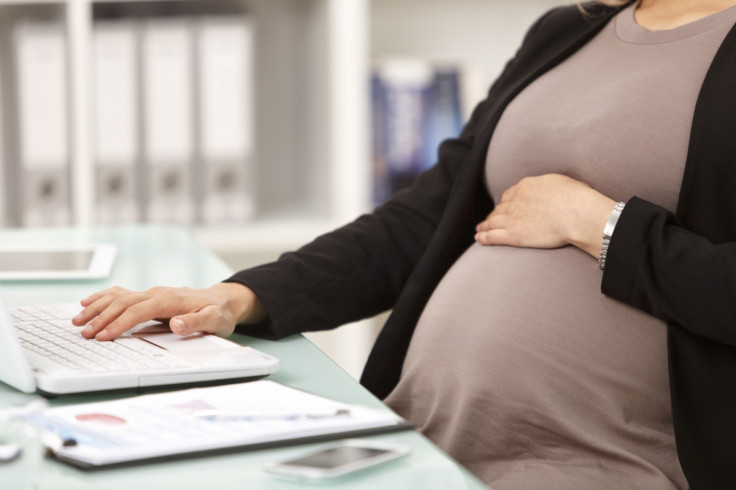Equal Pay Day: The motherhood penalty and other reasons we are still far from wage equality in 2015

Back in the summer, David Cameron said there had been "a slew of good news" for advocates of gender equality. If only things were quite so rosy.
It's true that the pay gap between men and women has narrowed very slightly over the last five years. But that's because wages have plummeted across the entire workforce. The fact that women lost a bit less, on average, than men did doesn't exactly give the Tories bragging rights.
The headline figure on the pay gap – that women today earn just 81p for every pound a man gets paid – is now relatively widely known. But there's more to the story than that, because there are also pay gaps within the pay gap.
It remains the case that one of the major drivers of wage inequality is the fact that we still have disproportionately high concentrations of women working in the lowest paid jobs. Perhaps it's no accident that many of these roles – including catering, cleaning and personal care – are related to outmoded conceptions of what used to be referred to as "women's work". To misquote Annie Lennox and Aretha Franklin: "We're coming out of the kitchen, but we just haven't got very far yet!"
Whatever the reasons, the result of this clustering is that a full 62% of workers earning less than the living wage (the real one, not the George Osborne fantasy version) are women. This in of itself doesn't explain the extent of wage inequality, though, because it's also true that that a substantial pay gap exists at graduate level, between men and women with equivalent levels of qualification and skill.
Part of the explanation for that can be seen in another gap within the gap – this one having to do with age. Wage inequality is like rot. It sets in early and gets worse over time. In 2013, for example, the pay gap for the under-25s was just 3.5%. But that figure rose to more than 20% once women passed the age of 40.
Which brings us to perhaps the single biggest explanation of all: the motherhood penalty. Put simply, working women are punished if they choose to take time out to start a family. And while this is nothing new, we should nevertheless be alarmed that even in the 21st century, flexible working and affordable childcare are still hard to come by. So the sad truth is that, for many mothers, the costs of work outweigh the rewards.
Of course some of the trends I've described are deep-seated, have been around for a long time and can't be directly attributed to any one administration. But that is not to absolve the current Government of any blame in the situation we find ourselves in today. In fact, policies introduced over the last five years appear to have actively made life harder for working women.
The now-notorious decision, in 2013, to introduce fees for employment tribunals is a case in point. The fees, which add up to more than £1,000 in many cases, have hit women harder than any other group. In the first year alone the introduction of fees led to an astonishing 91% drop in the number of sex discrimination claims. The fact that this has occurred at a time when more than 50,000 pregnant women are being forced out of their jobs each year should set off alarm bells in Whitehall.
Going back to the wage gap, the introduction of tribunal fees led to a drop in the number of equal pay claims, taken in isolation, of 75%.
And the cases that were shut out of employment tribunals were not frivolous claims, as ministers have sometimes suggested. The overall success rate of the claims that got a hearing was virtually unchanged following the introduction of fees – a strong indication that a large number of women with strong cases against their employers are being left to fend for themselves, with no legal recourse.
It may still be too early to tell what the impact of fees will be in the long term, and the government is currently reviewing their consequence. Nonetheless, the early evidence is not encouraging. A signal from the government that tribunal fees are here to stay would send a message to rogue employers that, for the time being at least, it's open season on working women.
Access to justice matters. After all, if we can't enforce our legal rights then what's the point in having them in the first place? We need the law itself to catch up to the times if we want to eradicate the pay gap once and for all.
The Equal Pay Act inspired a generation of young women, including me, when it was passed by a Labour government in 1970. But after 45 years, the job market has changed radically.
The 1970 Act never envisaged the problems of fractured employment practices and insecure working that define the 21st century labour market. A new act could bring the law up to date by closing some of the ridiculous loopholes that have arisen over the years, including those that have allowed employers to game the system by using agency workers and through sham self-employment.
The pay gap is not a problem that will be solved by rhetoric alone. We need a profound culture change in the workplace and a radical rethink on the legislation. None of this will be easy, and it will take a lot more effort on the government's part than warm words alone.
Emily Thornberry is the Labour MP for Islington South and Finsbury and the Shadow Minister for Employment.
© Copyright IBTimes 2025. All rights reserved.






















